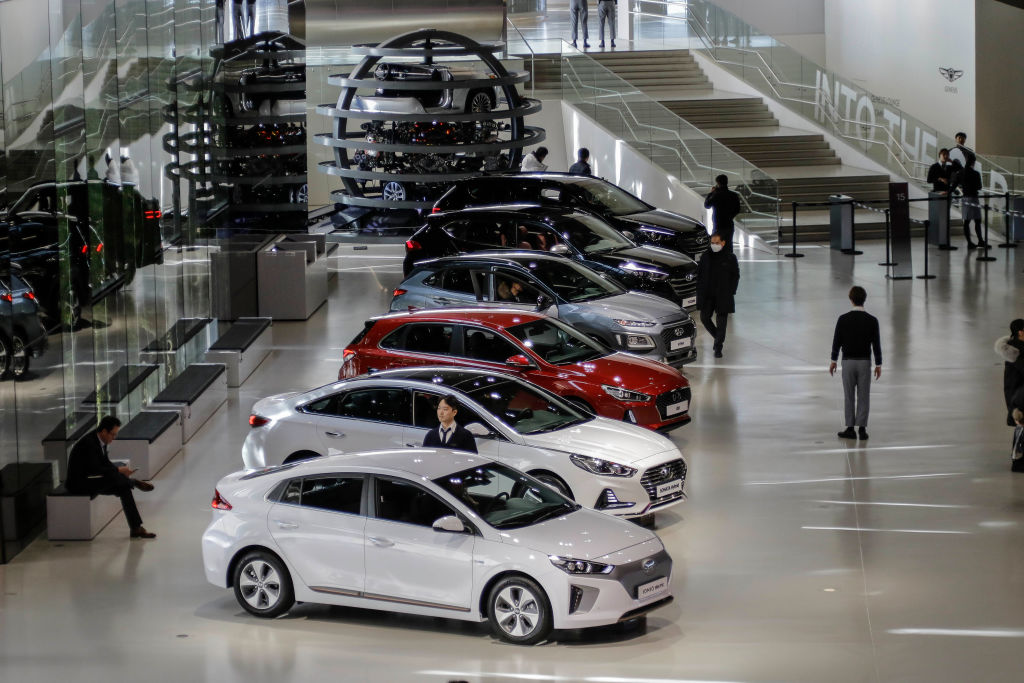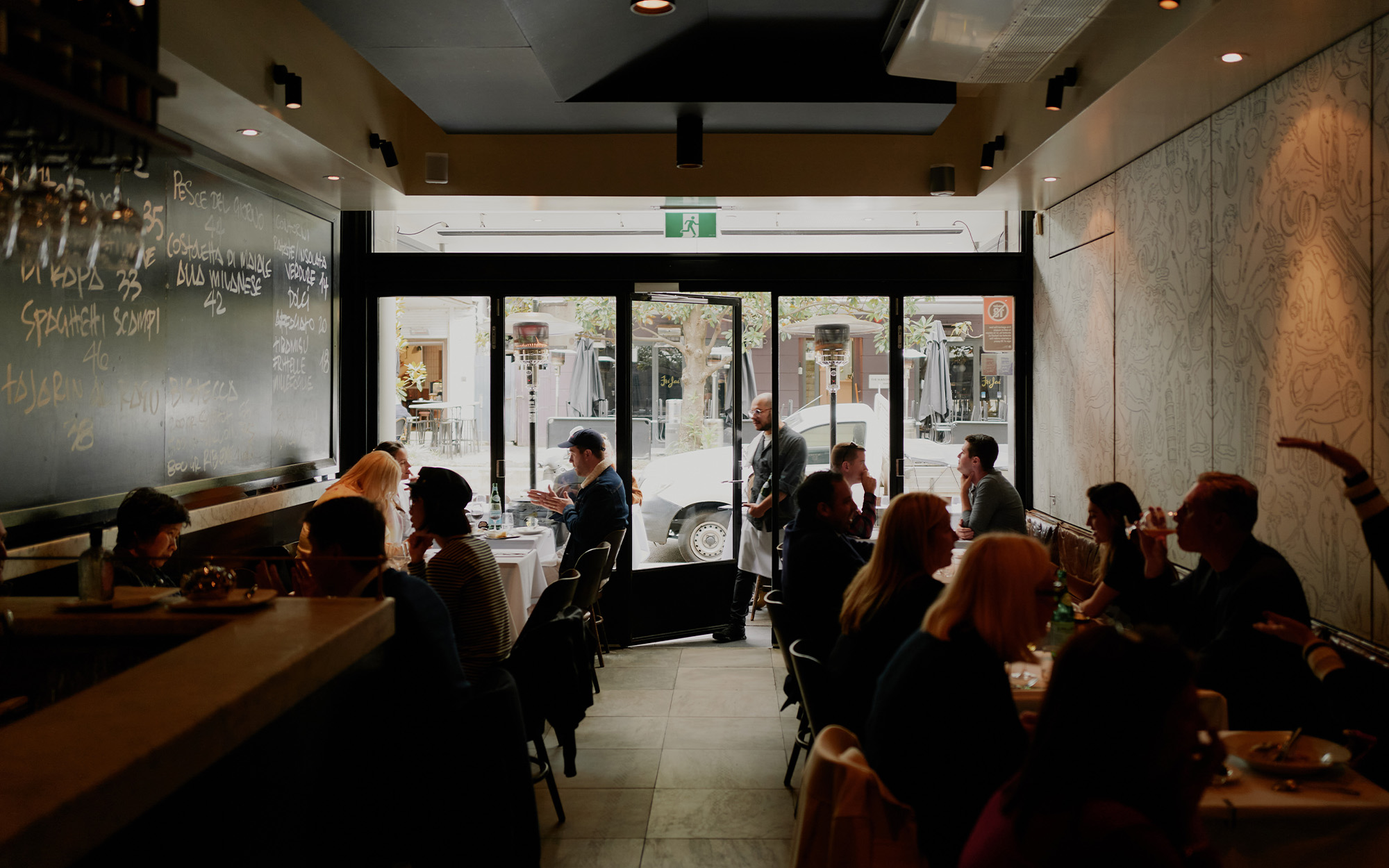Apple’s Electric-Vehicle Talks With Hyundai Break Down
The tech giant began seeking potential automotive partners late last year.
Apple Inc.’s talks with Hyundai Motor Group have broken down without an agreement for the South Korean auto giant to assemble vehicles for the iPhone company, Hyundai affiliates said Monday.
In regulatory filings, Hyundai Motor Co. and Kia Corp. said they are “not in talks with Apple over developing an autonomous vehicle.” The two auto makers have fielded multiple requests from other firms to jointly develop autonomous electric vehicles, though no initial steps have been determined, according to the regulatory filings.
The companies had held talks with the Cupertino, Calif. technology giant about a deal for Hyundai subsidiary Kia to build vehicles for Apple in Georgia, The Wall Street Journal reported last week. The prospect of an auto partnership had sent the Korean companies’ stocks soaring this year, igniting investor enthusiasm after both Kia and Hyundai had suffered years of slumping car sales.
Shares sank 6% for Hyundai Motor following Monday’s regulatory-filing disclosures, while Kia plunged by more than 13%.
Apple began seeking potential automotive partners late last year as it considers whether it can begin production of a vehicle as soon as 2024. In a rare move for a potential Apple partner, Hyundai in January said it was talking to Apple about a potential cooperation around electric, driverless vehicles. No sooner than it had said so, Seoul-based Hyundai tried to backtrack on the statement.
Kia had begun reaching out to potential partners in recent weeks about making an electric car for the iPhone maker, even without a deal having been locked down, the Journal previously reported.
Apple has flirted with other automotive companies over the years, but without reaching a partnership. Word of its secret car program broke in 2015, stoking excitement for the potential of what new possibilities Apple might bring to the auto market. The interest raised fears among traditional car makers that they’d soon be surpassed—like Nokia Corp. or BlackBerry Ltd. had been after the iPhone’s debut in 2007.
Instead, Apple’s auto effort has been largely unrealized as it has struggled to decide which path it will choose. It has gone through different leadership and approaches since beginning in 2014.
 Copyright 2020, Dow Jones & Company, Inc. All Rights Reserved Worldwide. LEARN MORE
Copyright 2020, Dow Jones & Company, Inc. All Rights Reserved Worldwide. LEARN MORE
This stylish family home combines a classic palette and finishes with a flexible floorplan
Just 55 minutes from Sydney, make this your creative getaway located in the majestic Hawkesbury region.
Continued stagflation and cost of living pressures are causing couples to think twice about starting a family, new data has revealed, with long term impacts expected
Australia is in the midst of a ‘baby recession’ with preliminary estimates showing the number of births in 2023 fell by more than four percent to the lowest level since 2006, according to KPMG. The consultancy firm says this reflects the impact of cost-of-living pressures on the feasibility of younger Australians starting a family.
KPMG estimates that 289,100 babies were born in 2023. This compares to 300,684 babies in 2022 and 309,996 in 2021, according to the Australian Bureau of Statistics (ABS). KPMG urban economist Terry Rawnsley said weak economic growth often leads to a reduced number of births. In 2023, ABS data shows gross domestic product (GDP) fell to 1.5 percent. Despite the population growing by 2.5 percent in 2023, GDP on a per capita basis went into negative territory, down one percent over the 12 months.
“Birth rates provide insight into long-term population growth as well as the current confidence of Australian families,” said Mr Rawnsley. “We haven’t seen such a sharp drop in births in Australia since the period of economic stagflation in the 1970s, which coincided with the initial widespread adoption of the contraceptive pill.”
Mr Rawnsley said many Australian couples delayed starting a family while the pandemic played out in 2020. The number of births fell from 305,832 in 2019 to 294,369 in 2020. Then in 2021, strong employment and vast amounts of stimulus money, along with high household savings due to lockdowns, gave couples better financial means to have a baby. This led to a rebound in births.
However, the re-opening of the global economy in 2022 led to soaring inflation. By the start of 2023, the Australian consumer price index (CPI) had risen to its highest level since 1990 at 7.8 percent per annum. By that stage, the Reserve Bank had already commenced an aggressive rate-hiking strategy to fight inflation and had raised the cash rate every month between May and December 2022.
Five more rate hikes during 2023 put further pressure on couples with mortgages and put the brakes on family formation. “This combination of the pandemic and rapid economic changes explains the spike and subsequent sharp decline in birth rates we have observed over the past four years,” Mr Rawnsley said.
The impact of high costs of living on couples’ decision to have a baby is highlighted in births data for the capital cities. KPMG estimates there were 60,860 births in Sydney in 2023, down 8.6 percent from 2019. There were 56,270 births in Melbourne, down 7.3 percent. In Perth, there were 25,020 births, down 6 percent, while in Brisbane there were 30,250 births, down 4.3 percent. Canberra was the only capital city where there was no fall in the number of births in 2023 compared to 2019.
“CPI growth in Canberra has been slightly subdued compared to that in other major cities, and the economic outlook has remained strong,” Mr Rawnsley said. “This means families have not been hurting as much as those in other capital cities, and in turn, we’ve seen a stabilisation of births in the ACT.”
This stylish family home combines a classic palette and finishes with a flexible floorplan
Just 55 minutes from Sydney, make this your creative getaway located in the majestic Hawkesbury region.






















